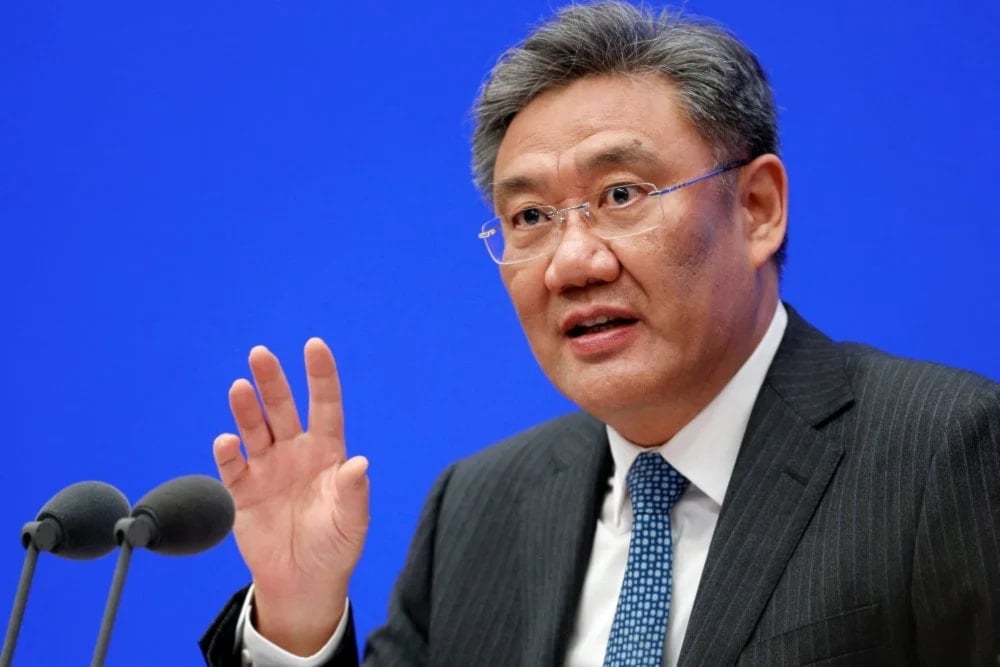China hits back at US over AI chip controls, vows retaliation
China slams new US warnings on AI chip use, calling them "bullying" and pledging firm retaliation to protect its semiconductor industry and interests.
-

China's Commerce Minister Wang Wentao, pictured here in Beijing, March 6, 2024. (AP/Ng Han Guan)
Beijing has strongly condemned new US guidelines warning against the use of Chinese-made AI chips, labeling the move as "unilateral bullying" and a threat to global supply chains.
The statement, issued Wednesday by China’s Commerce Ministry, came in response to Washington's tightened restrictions targeting high-tech semiconductors, particularly Huawei's Ascend chips, used in artificial intelligence development.
The ministry accused the United States of "abusing export controls to suppress and contain China" and warned that any entity aiding the enforcement of these measures could face legal consequences under Chinese law. It pledged firm action to safeguard what it described as the country’s “legitimate rights and interests.”
In March, the Trump administration added 80 companies and organizations to a list of companies that are banned from buying US technology and other exports due to "national security concerns."
Washington argues that advanced AI chips exported to China could enhance military capabilities or undermine US technological dominance. While the policy aims to restrict sensitive technology from reaching US adversaries, critics warn it could destabilize the global semiconductor industry.
According to the US Commerce Department, the restrictions are designed to ensure that advanced American AI technology is shared only with “trusted foreign countries.” A tiered system divides nations by risk, exempting top allies like Japan and South Korea, while imposing partial restrictions on countries such as Mexico and Portugal. Critics, however, argue the measures are both economically disruptive and strategically flawed.
Nvidia CEO: US chip controls on China are a ‘failure’
Industry leaders, including Nvidia and AMD, had lobbied against the tiered restrictions. Their stock prices surged after the Trump administration rolled back some export controls last week, responding to concerns from partner countries who feared being shut out of critical AI development.
📣 Announced at #COMPUTEX2025: TSMC, Cadence, KLA, Siemens and Synopsys are advancing semiconductor manufacturing by adopting the NVIDIA #CUDA-X and #NVIDIABlackwell platforms, to enhance computational lithography, process simulation and inspection for next-generation… pic.twitter.com/capvCvVwdd
— NVIDIA Data Center (@NVIDIADC) May 19, 2025
Speaking in Taiwan at a leading tech event, Nvidia CEO Jensen Huang called the US restrictions a “failure.” He explained that local Chinese companies had rapidly advanced their semiconductor capabilities as a direct result of US export bans.
“The local companies are very, very talented and very determined,” Huang said. “The export control gave them the spirit, the energy and the government support to accelerate their development.”
China’s response frames the US policy not only as hostile to Chinese growth but as a destabilizing force in an increasingly competitive global technology race. With Beijing warning of legal and diplomatic pushback, the US-China chip tensions now risk deepening the technological divide between the world’s two largest economies.

 3 Min Read
3 Min Read








